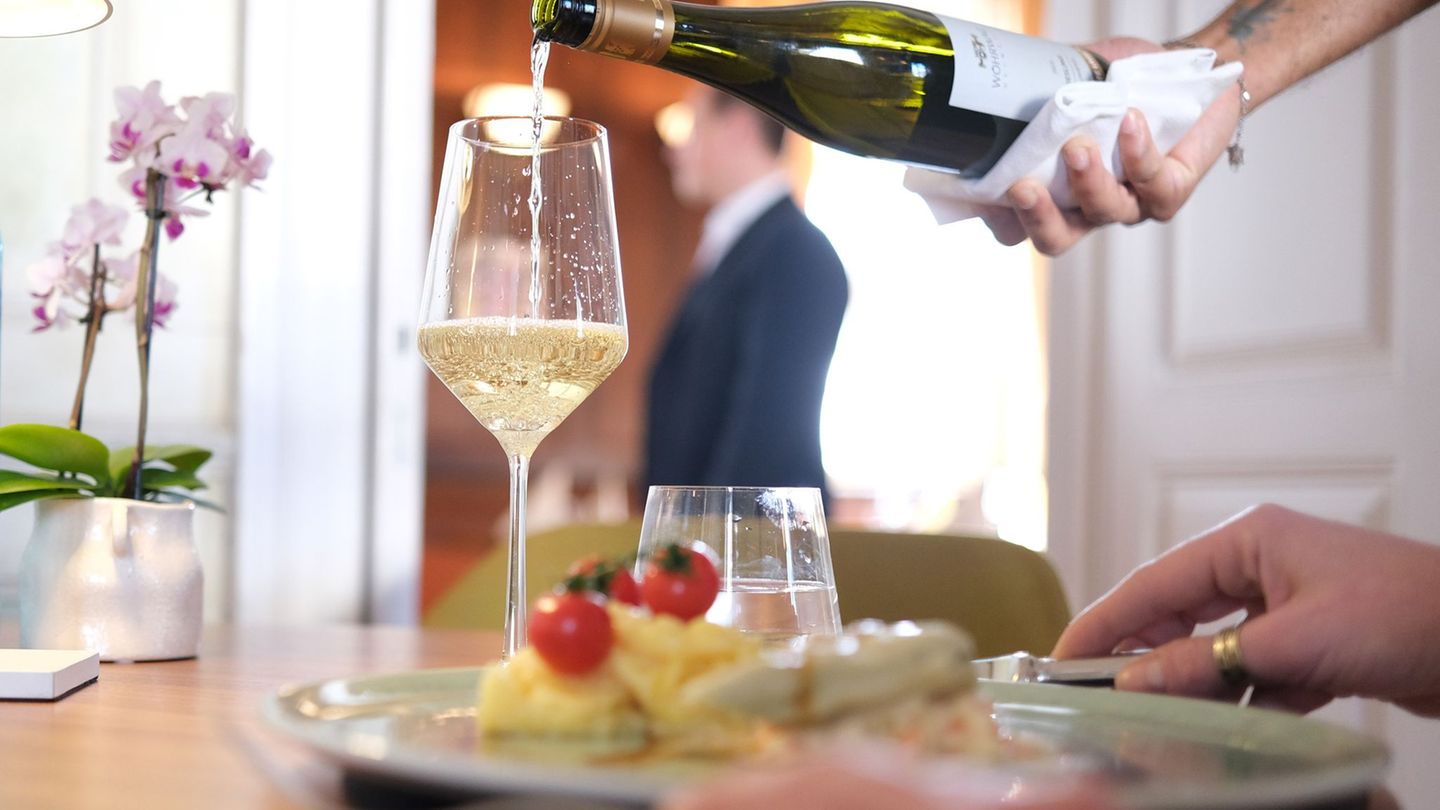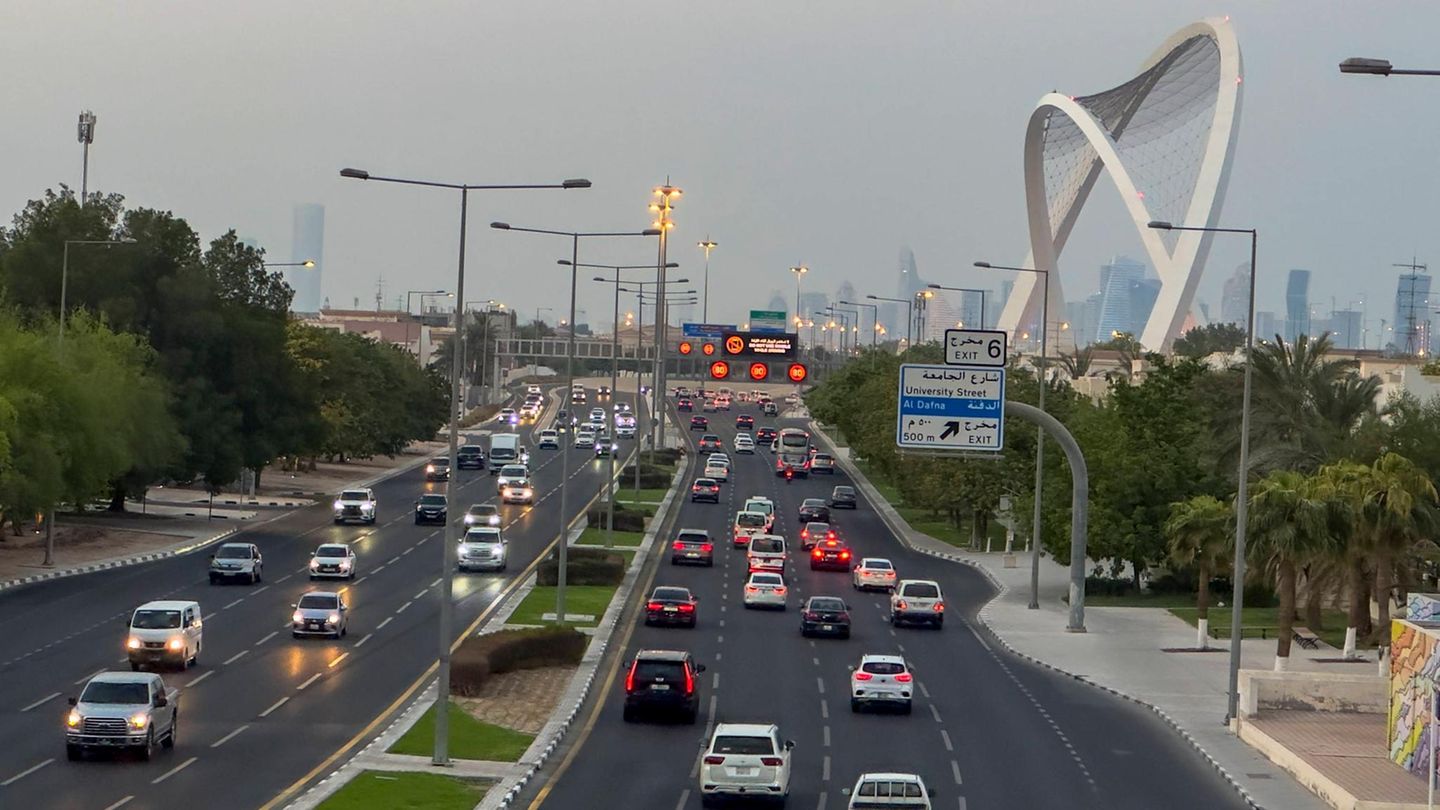Half -year balance
Ailed hospitality: no money for schnitzel discount?
Copy the current link
Add to the memorial list
Only with higher prices save restaurants and pubs. Customers save when going out. Despite the announced tax cut, you should not hope for a “schnitzel discount”.
Restaurants close, for more and more people, eating is becoming an unaffordable luxury: the German hospitality industry slipped even deeper into the crisis in the first half of this year, as the Federal Statistical Office reports. For the renovation, the industry relies on the VAT cut from 19 to 7 percent for the year 2026. The union NGG warns that the customers should not hope for a nationwide falling prices.
In the first half of the year, the sales of the hospitality industry decreased by 3.7 percent compared to the already weak period of the previous year, the Federal Statistical Office reports. Only significant price increases saved the revenues to the hosts and hoteliers: the sales were nominal only 0.1 percent lower than a year earlier. With a real decline of 4.1 percent, the gastronomy was hit harder than hotels and other accommodation companies that had to cope with 2.6 percent decline.
Currently higher sales tax on food
The full VAT rate of 19 percent, which has been valid again since the beginning of 2024 since the beginning of 2024, has contributed to the doldrums, which has driven the prices in pubs and restaurants. According to the will of the new federal government, this sentence is to be reduced to the meantime level from the Corona period of 7 percent at the beginning of 2026.
DEHOGA makes tax reduction a question of existence
The DEHOGA industry association makes the tax reduction enforced by the Union on the question of existence that decisions of many restaurants. “Only the return to 7 percent VAT on dishes can give the necessary air to breathe,” says President Guido Zöllick. “Without the 7 percent VAT, not only threatens to die gastronomic diversity, but also a noticeable loss of quality of life and culture in our city centers.”
No room for price cuts?
There seems to be no room for price cuts on the menu. Instead, the tax reduction gives entrepreneurs air in the face of increasing energy, goods and wage non-wage costs, says Thuringia’s Dehoga boss Dirk Ellinger. Entrepreneurs who could not generate their additional costs over the price could then work again.
The savings will not be passed on to the customers anyway, the NGG managing director for Darmstadt and Mainz, Guido Noll. “Anyone who hopes that Schnitzel, goulash soup, Kaiserschmarrn & Co. has also made the calculation without the landlord. Restaurateurs will find many flimsy reasons why they urgently need the 12 percent – for operation, for themselves.”
NGG: Customers should ask questions
The trade unionist recommends the customer to ask exactly where the 12 percent savings have remained and whether the employees would get higher salaries from the next year. Only with this “moral gastro print” can a “100 percent take-up effect” of the hosts prevent.
Union in principle against tax reduction
The union also generally opposes the permanent lowering of VAT for the food industrial, which sets a false household policy signal. “Neither employees nor the guests benefit from a tax relief,” says NGG boss Guido Zeitler. Instead, more collective bargaining, fair wages and better working conditions are needed. “Especially in an industry in which over half of the employees work in the low -wage sector, this is the right way to real improvement.”
DEHOGA points to exploded costs
DEHOGA President Zöllick points to the falling sales at the same time exploded. Personnel, food, energy, drinks: Everything has become between 27 and 35 percent more expensive since 2022. This also contains customers: “Many guests are less likely to eat, choose cheaper dishes, do without starters or the second drink.” Losers are restaurants and inns, because consumers from eating or grocery retail to eat, for whom only 7 percent have always apply.
No recovery in summer
The statistics currently only show weak development in summer business. After a short intermediate high at Easter, the situation continued to cloud in June. According to the Federal Office, sales were 5.9 percent below the same month and, including the price increases, 3.4 percent lower than one year ago.
The Nuremberg IT service provider DATEV looks ahead a month further ahead of VAT. After that, the sales of the hospitality industry were 4.0 percent lower than a year earlier. DATEV boss Robert Mayr says: “With the lack of summer revitalization, the economic situation in gastronomy is increasing.”
Destati’s hospitality sales 1. Half year 2025
dpa
Source: Stern




